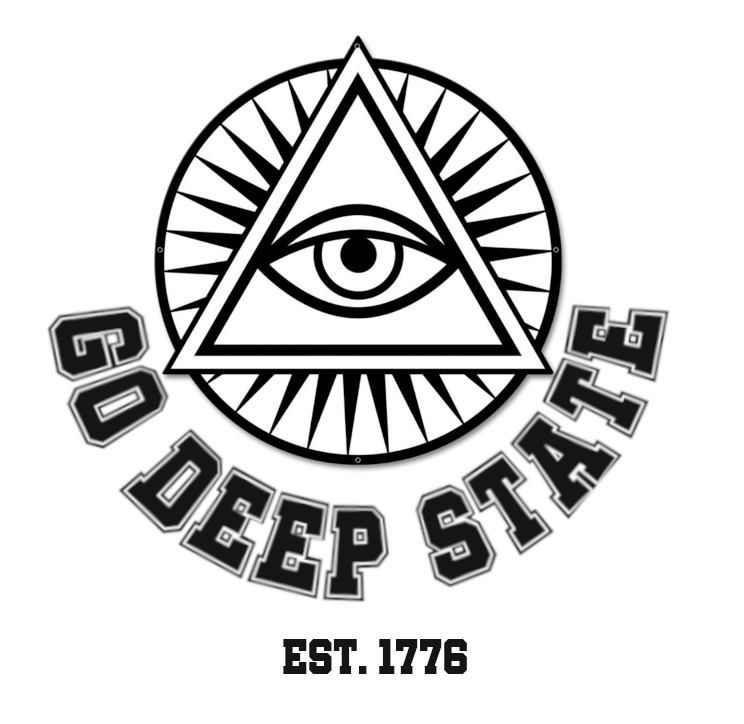
By V. Spy
Former President Donald Trump and his bulldog Steve Bannon elevated the concept of a “deep state” into political discourse in the United States during Trump’s campaign for president and then used it in the White House to try to cudgel critics.
It is a concept that gained enough steam to have its own Wikipedia page.
According to this American political conspiracy theory, the deep state is a clandestine network of members of the federal government (especially within the FBI and CIA), working in conjunction with high-level financial and industrial entities and leaders, to exercise power alongside or within the elected United States government.
The term deep state originated in the 1990s as a reference to an alleged longtime deep state in Turkey, but began to be used to refer to the American government as well during the Obama administration. This conspiracy theory reached mainstream recognition under Trump, who referenced an alleged “deep state” working against him and his administration’s agenda. The use of Trump’s Twitter account, combined with other elements of right-wing populist movements during his presidency, gave birth to numerous conspiracy theory groups, such as Qanon.
The term has precedents since at least the 1950s, including the concept of the military–industrial complex, which posits a cabal of generals and defense contractors who enrich themselves through pushing the country into endless wars.
Opinion polling done in 2017 and 2018 suggests that approximately half of all Americans believe in the existence of a deep state.
Critics of Trump’s use of the term ‘deep state’ maintain that it is a conspiracy theory with no basis in reality.
UCLA School of Law professor Jon D. Michaels argued that compared with developing governments such as Egypt, Pakistan and Turkey, governmental power structures in the United States are “almost entirely transparent”. Michaels argues that the American ‘deep state’, which includes federal agencies responsible for regulation, welfare, crime prevention and defense — and the employees who operate them — differs fundamentally from Trump’s use of the term in five important respects:
Not Elitist – In the US, bureaucrats come from a diverse range of socio-economic backgrounds, especially when compared to those in the Middle East, and even Western Europe.
Not Shadowy – American agencies are generally “transparent and accessible”, in comparison to those of the Middle East, Asia, and Europe.
Not Monolithic – the American deep state is “internally diverse and fragmented.”
A Bulwark, Not a Battering Ram – actions of civil servants in the US are inherently defensive, not proactive.
Not an Extraconstitutional Force – the bureaucracy should be seen as part of the constitutional system of checks and balances in the US, which often serves as a final check on presidential or agency overreach.
Critics warned that use of the term in the United States could undermine public confidence in institutions and be used to justify suppression of dissent, which is probably why Trump and Bannon and other MAGA Republicans use the term — to fool some of the people into voting for them.
Political commentator and former presidential adviser David Gergen said that the term had been appropriated by Steve Bannon, Breitbart News, and other supporters of the Trump administration in order to delegitimize the critics of the presidency.
Stephen Walt, professor of international relations at Harvard University, argued that there is no deep state and that “to the extent that there is a bipartisan foreign-policy elite, it is hiding in plain sight”.
Anthropologist C. August Elliott likened military involvement in the Trump administration as a “shallow state” in which they were forced to guide the administration “away from a potential shipwreck”.
Linguist Geoffrey Nunberg said that deep state is an “elastic label” in that “its story conforms to the intricate grammar of those conspiracy narratives”, referencing the transition of conservative rhetoric regarding “big government” from “meddlesome bunglers” to “conniving ideologues”.
Even Fox News panelist Charles Krauthammer called the idea ridiculous, arguing that bureaucracy exists in the United States government rather than a government-wide conspiracy.
Check out our T-shirt designs at Bonfire.com/Deep-State-U